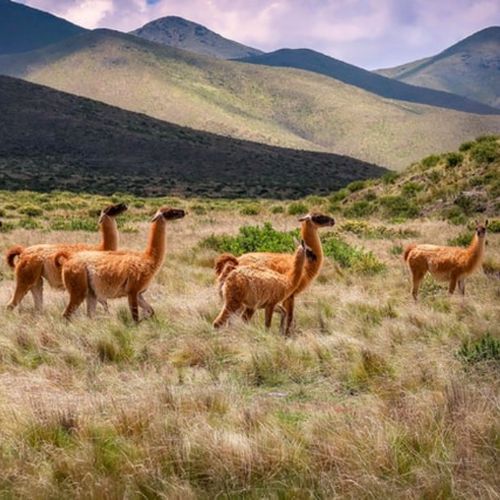Alpaca : A Soft, Sustainable Solution To Fast Fashion?
Jun 20, 2022 · 2 mins read
0
Share

The modern fashion industry is replete with waste. Consuming 20% of global water, creating 10% of CO2 output and a fifth of the plastic waste manufactured each year, fashion is officially bad for the environment. ‘Fast fashion’ - mass production of low cost clothing - is worse.
Save
Share
But thanks to increased consumer awareness, brands are finally taking responsibility for their supply chains. As humans rights violations, child slavery and environmental pollution are highlighted, companies have no option but to seek ethical manufacturing and raw materials.
Save
Share
Shoppers increasingly avoid animal wool, citing cruelty and a rise in fibre allergies as reasons. If fleece could be obtained safely, sustainably and cruelty free, the clothing industry could revolutionise its impact on our planet. Alpaca wool could be the eco friendly solution.
Save
Share
Alpacas, natives of South America, have been domesticated for centuries. Their nature is calm, quiet and observant unless mating or fighting, making them perfect additions to the farm. They belong to the species Camelid and are known to spit although usually only at each other!
Save
Share
Herds of alpacas live on rocky mountainsides on land otherwise unfarmable. They give birth once a year to a cria – the Spanish word for baby. Many crias make up a litter. Alpacas are herbivores and forage on grass, hay, barley and mountain flora, and can live for 15-20 years.
Save
Share
Once a year in spring an alpaca will require shearing. Shaving the fleece is essential to improve the animals core temperature control and keep it comfortable and healthy. It is cruelty free, unlike modern sheep shearing, and the wool comes in 52 distinct natural colours!
Save
Share
Alpaca wool is soft and not itchy. It is lanolin free and therefore hypoallergenic. It is strong, durable and easy to process into hats, sweaters, socks and more. No dye or chemicals are used and the wool is washed only once during the process, saving precious water resources.
Save
Share
These charming animals consume less water than farm animals and live where traditional livestock don’t. Alpaca wool is fully biodegradable and can be used to make insulation or hardwearing rugs. It is water resistant, fire retardant, wrinkle proof and completely odourless.
Save
Share
Alpacas are clean animals, with herds even using one communal toilet area. They produce fertiliser: alpaca excrement is a safe, nutritious medium to grow crops. Their wool creates gorgeous garments that can last a lifetime, when 85% of fast fashion ends up as landfill.
Save
Share
The fashion industries shameful time as the words 3rd biggest polluter could be coming to an end. Sustainable and ethical solutions like alpaca wool can improve lives in rural communities while keeping landfill to a minimum, saving water, resources and the planet. Shear genius!
Save
Share
0